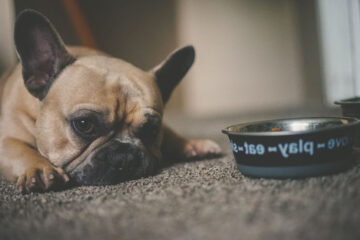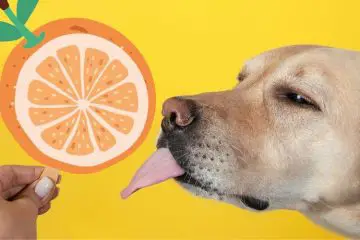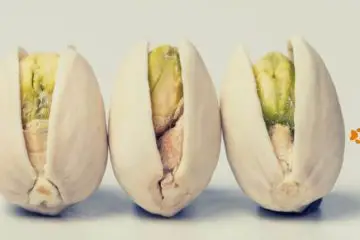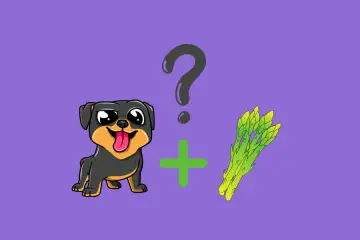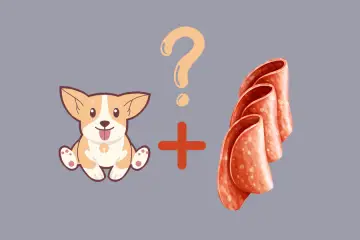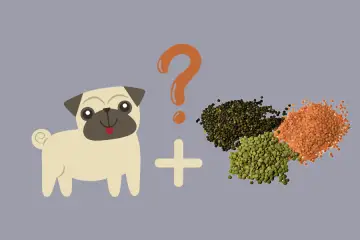Health Benefits of Lettuce for Dogs
Lettuce is a very healthy food choice. But can dogs eat lettuce? Yes! It has some essential vitamins and minerals, including vitamin K, A, B-complex vitamins and potassium, but there is more!
Key Takeaways
- Lettuce can help to improve your dog’s eyesight, boost his immune system and provide him with energy for the day.
- Lettuce contains fiber, which can help to keep your dog’s digestive system healthy.
- Raw or undercooked pork can contain harmful bacteria and parasites.
- Be mindful of the amount of pork that you feed your dog. It’s high in fat and can lead to obesity or other health problems if eaten in excess.
- Lettuce is made of 90 percent water, so it can do a marvelous job keeping your pup hydrated.
- Too much lettuce can cause an upset stomach.
Different Types of Lettuce Have Different Nutritional Values
With its crisp texture and mild flavor, lettuce can add a delightful crunch to any dish. From buttery Boston to refreshing romaine, this leafy green offers an array of nutritious benefits. Let’s take a look at the most popular varieties.
Iceberg
Iceberg lettuce may be the go-to choice for many people, but it’s actually not that healthy. It’s surprisingly low in nutritional value and can cause stomach upset or bloating if eaten too much at once. However, iceberg has a higher water content and less fiber than other lettuces, such as romaine, so it’s likely easier on a dog’s stomach.
Romaine
If you’re wondering, “can dogs eat lettuce?”, know that it’s generally safe to feed your dog in moderation. Romaine lettuce is rich in all the standard nutrients you would expect a lettuce to have, and it also contains a compound called lactucarium. It has sedative and analgesic properties, so if your dog is suffering from something like arthritis, they may benefit from having this compound in their diet.
Arugula
When it comes to providing the healthiest leafy greens for your pup, arugula is top of the list. Packed with an abundance of essential nutrients like vitamins K and A as well as B-complex vitamins and potassium, this powerhouse vegetable offers a wealth of benefits from promoting weight loss to aiding cardiovascular health. Plus, its high fiber content can help support optimal digestive functioning in dogs. Incorporating arugula into their diet may even give them a glossier coat! Keep in mind, though, that due to its strong flavor profile, Fido might take some time getting used to his new veggie treat.
Kale
Kale lettuce is absolutely brimming with health benefits for our furry friends, though it’s important to remember that mostly water and fiber won’t provide complete nutrition. The fiber in this lettuce can help with constipation and the water content of lettuce is good for hydration, but lettuce should not be fed as a substitute for meat or other nutritional sources.
The Cons of Feeding Lettuce to Dogs
Can dogs eat lettuce? Lettuce may be safe for dogs to eat in small quantities, but there are some potential dangers to consider.
- Lettuce is not a very low-calorie food, so it may not be ideal for dogs who are underweight or need to gain weight.
- There have been cases where lettuce has caused digestive problems such as diarrhea, vomiting and bloating.
- They are not as rich in nutrients as many other human foods that are also safe for dogs to eat.
- Iceberg lettuce should be introduced slowly into your dog’s diet in case he doesn’t react well to this new food.
Can Your Dog Have a Salad?

Can dogs eat lettuce? Now you know that the answer to that question is yes. But whether you can let your dog enjoy some salad depends entirely on the ingredients you use. If it’s plain lettuce and dog-friendly veggies like peas and carrots (we’re all for that extra beta-carotene!) and no tomatoes and onions, then your dog can have it safely.
There is a catch, though: dogs can have salad dressing that only contains natural ingredients like olive oil or low-sodium chicken broth. The dressing should never contain preservatives or sodium. Making sure that all the ingredients are good for your dog’s tummy can be overwhelming, but it’s crucial if you want to avoid an upset stomach.
If you’re not sure whether your dog can have a certain ingredient, it’s always best to check with your veterinarian first. They will be able to give you the most accurate answer based on your dog’s individual dietary needs.
So, Can Dogs Eat Lettuce?

Can dogs eat lettuce? Yes, if done so in moderation. Lettuce should never be the only source of nutrition. It does make for a healthy snack from time to time, though, and your dog will probably love the taste of fresh, crunchy lettuce. So go ahead and give your dog a bite – he’ll thank you for it! Just don’t make it the main part of their menu.
Frequently Asked Questions
What Lettuce Can Dogs Not Eat?
Generally speaking, all types of lettuce are not toxic for dogs to eat. There are, however, a few exceptions. Iceberg lettuce contains very little nutrition and can cause digestive upset in some dogs if eaten in large quantities.
Does Lettuce Give Dogs Diarrhea?
Although not toxic, some dogs may experience diarrhea after eating lettuce. This is usually due to the fact that lettuce contains a high amount of water and fiber. If your dog does have diarrhea after eating lettuce, discontinue feeding it to them and contact your veterinarian.
Is Green Leaf Lettuce OK for Dogs?
Green leaf lettuce is generally safe for dogs to eat. However, some dogs may experience digestive upset after eating green leaf lettuce. If your dog experiences any digestive issues after eating green leaf lettuce, it is best to avoid feeding it to them in the future.
Can Dogs Eat Butterhead Lettuce?
Yes, dogs can eat butterhead lettuce. This type of lettuce is safe for dogs to eat in moderation. When feeding your dog butterhead lettuce, make sure to remove the stem and any other hard parts.
Is Cabbage OK for Dogs?
Raw cabbage, without any seasonings or additives, is safe for dogs to eat. However, it may cause gastrointestinal upset or bloating in some dogs, so it’s best to introduce it to your dog’s diet slowly. Btw, take a look at what greens are the best for Doggo: green chart for your pooch.
